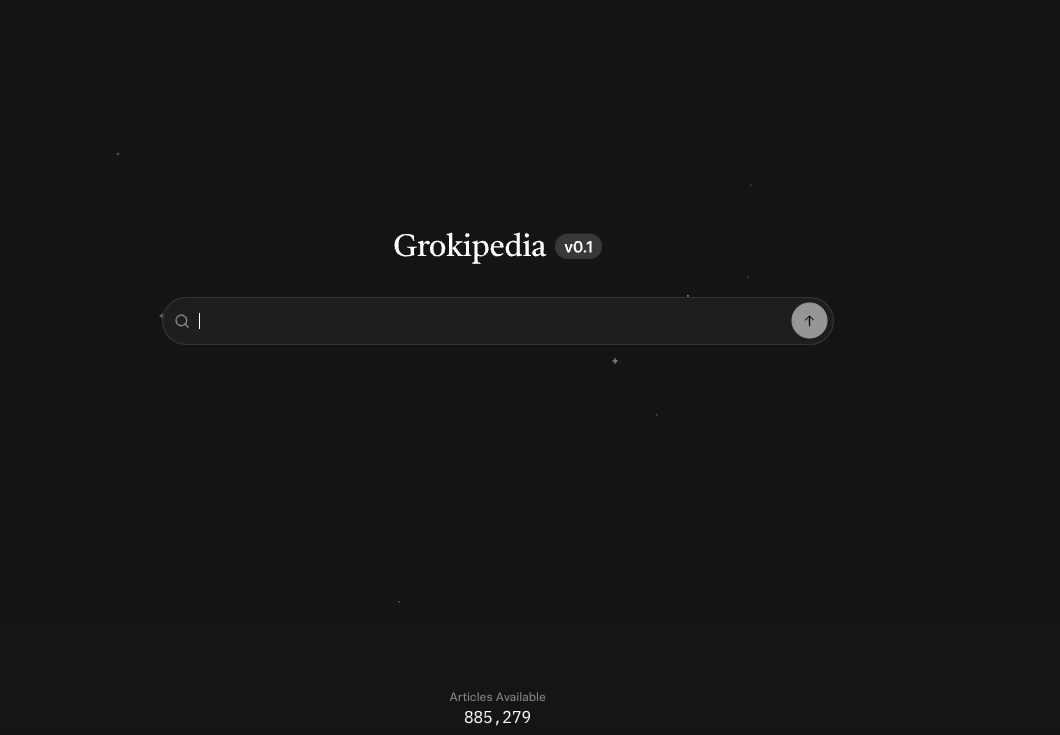xAI Launches Grokipedia Beta Amidst Content Copying Allegations
xAI, Elon Musk’s artificial intelligence venture, has officially rolled out the early beta version (v0.1) of Grokipedia, its much-anticipated open-source knowledge repository. Launched around October 25th after a series of minor delays, Grokipedia is touted by Musk as a "massive improvement over Wikipedia," promising "unbiased" information and a significant step towards xAI's audacious goal of "understanding the Universe." Yet, the rollout quickly sparked a familiar debate, with reports surfacing that the platform's content bears substantial resemblance to, and potentially copies, existing Wikipedia entries.
Grokipedia Enters Beta, Challenges Wikipedia's Dominance
The debut of Grokipedia comes with considerable fanfare from xAI's corner. Musk has been vocal on X (formerly Twitter), claiming even this initial, somewhat buggy release is "better on average than Wikipedia." The platform, which is freely accessible with no usage limits, aims to differentiate itself through its integration with Grok AI, promising "AI-powered truth-seeking" and the active "purging propaganda" that Musk believes plagues traditional knowledge sources. Early benchmarks released by xAI suggest Grokipedia can handle queries 20-30% faster than Wikipedia searches, leveraging its AI backbone for dynamic, real-time updates by processing a vast amount of online content. It's an ambitious vision, no doubt.
The launch, originally targeted for mid-October, saw postponements attributed by Musk to the need for refining accuracy and addressing potential biases. Now, with v0.1 live, the company is actively seeking user feedback to shape its future iterations, with a full version 1.0, including user editing capabilities, anticipated by early 2026. This move certainly positions Grokipedia as a direct challenger to Wikipedia's two-decade-long reign as the internet's primary free encyclopedia.
Content Copying Claims Emerge, Wikimedia Foundation Responds
But how "from scratch" is this new encyclopedia, really? Almost immediately following the beta launch, concerns about content sourcing shot to the forefront. Major tech outlets like The Verge, reporting on October 26th, and corroborated by Wired, highlighted significant overlaps between Grokipedia's initial dataset and Wikipedia articles. Critics are suggesting that Grok, the underlying AI, was trained on publicly available datasets that likely included large dumps of Wikipedia content, leading to what some are calling outright copying without proper attribution. This isn't exactly a new problem for AI models, is it?
xAI has, to date, not directly addressed the "copying" allegations head-on. Their official communication continues to emphasize building from the ground up and their mission to deliver propaganda-free knowledge. However, the Wikimedia Foundation isn't taking these developments lightly. On October 27th, they released a statement, carefully worded, noting they are "monitoring for IP violations" and gently reminding developers about their licensing requirements. Wikipedia operates under a Creative Commons Attribution-ShareAlike (CC BY-SA) license, which permits reuse and adaptation so long as the original source is properly attributed. No legal action has been initiated yet, mind you, but the situation is certainly one to watch closely.
The Road Ahead: AI, Bias, and User Trust
Grokipedia’s reliance on Grok AI to analyze "every post and watch every video" for dynamic content updates is a key differentiator, a stark contrast to Wikipedia's community-driven, human-edited model. This approach aims for unparalleled speed and a "maximum truth" output, yet it also raises significant questions about potential AI-induced biases and whether the "propaganda purge" might lean into selective censorship, as some AI ethicists have already warned.
User sentiment is predictably mixed right now, reflecting the wider tech community's polarized views on xAI's ventures. While many praise the innovation and the promise of a less biased platform, a substantial portion of feedback highlights bugs and voices skepticism over the alleged content copying. As xAI pushes forward with rapid iteration – a familiar pattern for Musk’s companies – the critical task will be not just to refine the AI's capabilities but also to transparently address intellectual property concerns and build trust in a world increasingly wary of AI-generated content. The question remains, can Grokipedia truly become a universally trusted knowledge source without facing these foundational issues?
